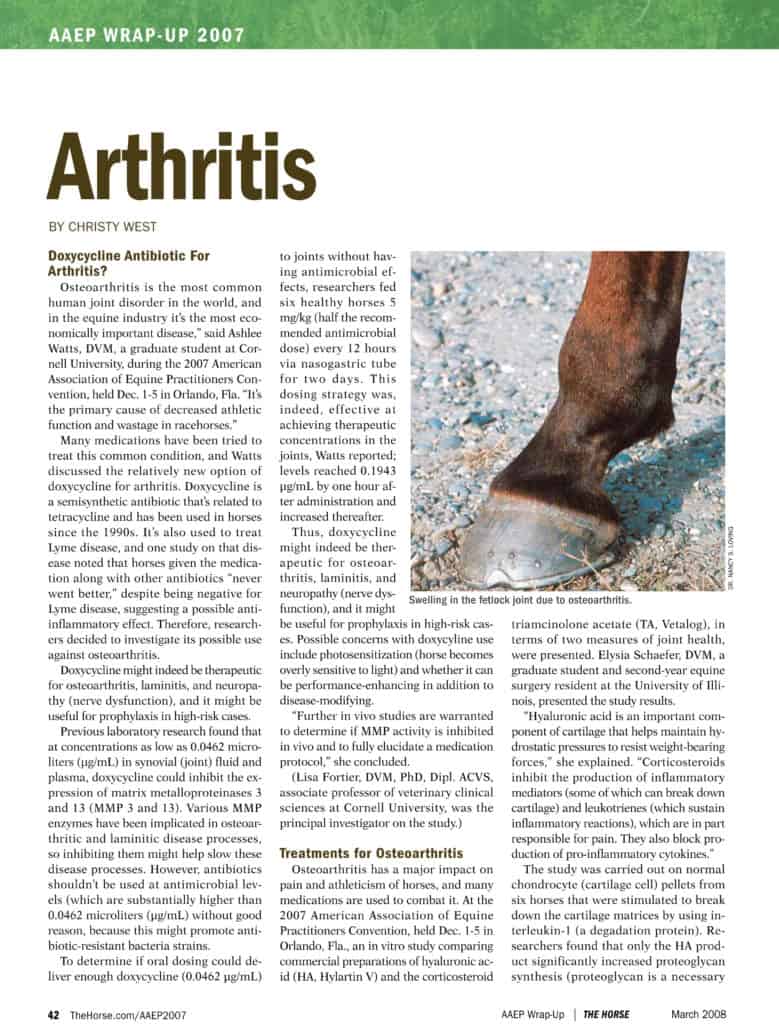
Equine Arthritis
Equine arthritis refers to an inflammation of the joint. There are different kinds of arthritis, such as septic arthritis and rheumatoid arthritis. However, the most important arthritis affecting horses is osteoarthritis.

Equine arthritis refers to an inflammation of the joint. There are different kinds of arthritis, such as septic arthritis and rheumatoid arthritis. However, the most important arthritis affecting horses is osteoarthritis.
A joint is defined as an anatomic union or junction between two or more bones. There are three basic types of joints in the horse: Synovial, fibrous, and cartilaginous.
Nearly 125 people turned out on a steamy summer day, June 27, for the University of Kentucky’s first all-equine field day.

Learn about breakthrough treatment protocols for manage equine joint inflammation.

Treatments for osteoarthritis in horses, including the doxycycline antibiotic and the nutraceutical Myristol, were discussed at the 2007 AAEP Convention. Also discussed were the clinical efficacy and joint health parameters of Surpass (topical liposomal diclofenac cream) compared to those of the commonly used oral non-steroidal anti-inflammatory medication phenylbutazone (Bute).
There are a number of modes of therapy that can help maintain joint health and reduce pain associated with joint disease.
Bog and bone spavin don’t necessarily have to end your horse’s performance career, but they certainly require careful attention and care.
In many cases, you can completely cure the horse of the underlying ailment that causes his stiffness. And even in cases where the horse suffers from a chronic condition such as arthritis, your careful, consistent efforts to battle stiffness can improve his performance and, more important, his quality of life and his pleasure of performing with you.
Stay on top of the most recent Horse Health news with
"*" indicates required fields